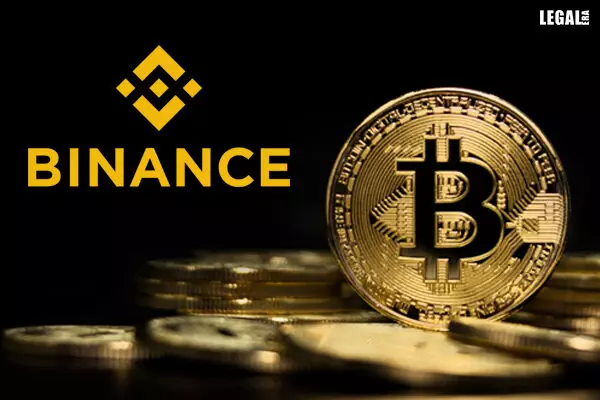- Home
- News
- Articles+
- Aerospace
- Agriculture
- Alternate Dispute Resolution
- Banking and Finance
- Bankruptcy
- Book Review
- Bribery & Corruption
- Commercial Litigation
- Competition Law
- Conference Reports
- Consumer Products
- Contract
- Corporate Governance
- Corporate Law
- Covid-19
- Cryptocurrency
- Cybersecurity
- Data Protection
- Defence
- Digital Economy
- E-commerce
- Employment Law
- Energy and Natural Resources
- Entertainment and Sports Law
- Environmental Law
- FDI
- Food and Beverage
- Health Care
- IBC Diaries
- Insurance Law
- Intellectual Property
- International Law
- Know the Law
- Labour Laws
- Litigation
- Litigation Funding
- Manufacturing
- Mergers & Acquisitions
- NFTs
- Privacy
- Private Equity
- Project Finance
- Real Estate
- Risk and Compliance
- Technology Media and Telecom
- Tributes
- Zoom In
- Take On Board
- In Focus
- Law & Policy and Regulation
- IP & Tech Era
- Viewpoint
- Arbitration & Mediation
- Tax
- Student Corner
- AI
- ESG
- Gaming
- Inclusion & Diversity
- Law Firms
- In-House
- Rankings
- E-Magazine
- Legal Era TV
- Events
- News
- Articles
- Aerospace
- Agriculture
- Alternate Dispute Resolution
- Banking and Finance
- Bankruptcy
- Book Review
- Bribery & Corruption
- Commercial Litigation
- Competition Law
- Conference Reports
- Consumer Products
- Contract
- Corporate Governance
- Corporate Law
- Covid-19
- Cryptocurrency
- Cybersecurity
- Data Protection
- Defence
- Digital Economy
- E-commerce
- Employment Law
- Energy and Natural Resources
- Entertainment and Sports Law
- Environmental Law
- FDI
- Food and Beverage
- Health Care
- IBC Diaries
- Insurance Law
- Intellectual Property
- International Law
- Know the Law
- Labour Laws
- Litigation
- Litigation Funding
- Manufacturing
- Mergers & Acquisitions
- NFTs
- Privacy
- Private Equity
- Project Finance
- Real Estate
- Risk and Compliance
- Technology Media and Telecom
- Tributes
- Zoom In
- Take On Board
- In Focus
- Law & Policy and Regulation
- IP & Tech Era
- Viewpoint
- Arbitration & Mediation
- Tax
- Student Corner
- AI
- ESG
- Gaming
- Inclusion & Diversity
- Law Firms
- In-House
- Rankings
- E-Magazine
- Legal Era TV
- Events
U.S. Federal Court Temporarily Halts Voyager Digital's $1.3 billion Sale to Binance U.S

U.S. Federal Court Temporarily Halts Voyager Digital's $1.3 billion Sale to Binance U.S
The U.S. Federal Court has temporarily stopped bankrupt Voyager Digital from completing a proposed $1.3 billion sale to crypto exchange Binance U.S, while allowing the U.S. government more time to pursue appeals that challenge the legality of the deal.
The following development comes as result of a lawsuit filed against Binance and its founder CZ by the Commodity Futures Trading Commission (CFTC) for violating federal derivatives laws.
This indicates that the U.S. authorities will investigate the deal’s legality in greater detail.
The Department of Justice (DOJ), the United States Attorney’s Office for the Southern District of New York, and the United States Trustee’s Office all appealed the Court’s 1st March, 2023 decision to allow the sale of Voyager Assets to Binance U.S.
They contended that the said safeguards may act as a seal of approval for digital currencies that are unregistered securities. As an extra bonus, it could legitimize deals that break US securities laws.
U.S. District Judge Jennifer Rearden in Manhattan ruled that the sale should be put on hold, overruling Voyager's argument that a delay could cause Binance.US to back out of the deal entirely.
In July, 2022 Voyager had filed for bankruptcy. According to Voyager, the DOJ appeals should not be allowed to keep the company and its customers "in limbo" during a legal process of uncertain duration.
Binance.US has agreed to pay $20 million in cash to Voyager, and take on crypto assets deposited by Voyager customers. Those assets, valued at $1.3 billion in February, account for the bulk of the deal's valuation, according to Voyager.
The international Binance crypto exchange was sued on 27 March, 2023 in a separate legal action by the U.S. Commodity Futures Trading Commission (CFTC), which filed a lawsuit alleging that Binance.com operated an ‘illegal’ exchange and a ‘sham’ compliance program.
Binance.US maintains publicly that it is entirely independent of Binance.com, operating as the "U.S. partner" to the world's biggest crypto exchange.
Further, the CFTC argued that in its lawsuit, alleging that Binance personnel ‘dictated Binance U.S's corporate strategy, launch and early operations’ and that it has an ongoing relationship with BAM Trading, a company controlled by Binance CEO and founder Changpeng Zhao.



